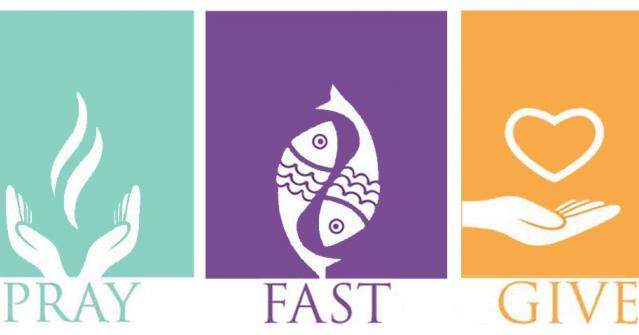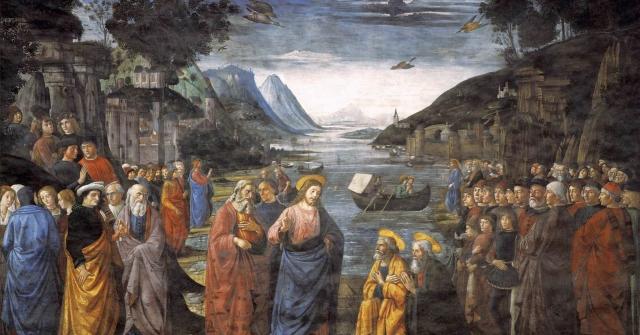
Keep Calm: It's Ordinary (Time) Rush We're in the Second Part of Ordinary Time

Discipleship relationships are unclear to me, particularly in Vancouver, a Western urban society where relationships tend to be cordial, but distant and weak. The city’s fast pace, and the high value of privacy and independence, makes it very difficult to develop deep and close relationships, even within the church. Discipleship relationships are those that are close enough that they invite our fellow disciples of Jesus to speak into our lives.
In my 14 years of living in Vancouver, I have not been able to develop that kind of intimate relationship in the church, so I saw the visit of my sister and niece as a discipleship opportunity. Both came from Bolivia to spend the month of June living in my two-bedroom suite with my husband and toddler. I asked my sister to speak into my life by answering this question: In the context of being disciples of Jesus, what are some things that you have observed in my life in the past month that hurt you or raised concerns?
It is a complicated and sensitive question, but my sister pointed to a few of my character traits — impatience being one of them. I have little patience when I sense there are wasteful behaviours. I was a bit too harsh when I asked my niece to use more sparingly the bath bubbles I bought for her. My impatience has also manifested in my ministry work. My sister’s notice of it during our shared life inspired me to meditate more on it during “Ordinary Time.”
We are in the second part of “Ordinary Time”, the church season that calls us to live our daily lives in watchful expectation of the second coming of Christ. I will use a portion of King Saul’s life to grow in awareness about the long-term implications of impatience.

The life of King Saul greatly connects character to discipleship and mission. I used to see Saul as just the “bad guy” in King David’s story, but after learning more about him, it turns out we have a lot in common when it come to his rushed choices.
Here is a little context about Saul. If he had an online profile, it would read something like this:
"Saul, son of Kish, Male, 30 years old, very tall and handsome with beautiful hair. Career: At 30 years old was chosen by God for the top job of the country: King of Israel."
Saul pioneered that high stress position which entailed the unification and establishment of the tribes of Israel into a nation. This mission implied constant battles with the Philistines, who had better war technology than Israel. Saul’s headshot would likely be in numerous business and celebrity magazines as the first young, pious, and good-looking prime minister of God’s people. Saul was a celebrity.
Like me in my ministry work, Saul made rushed choices whenever he let his action-orientation giftedness take over his dependence on God. For example, when he was under great pressure, he took initiative and offered a sacrifice to God, instead of waiting for the priest Samuel.
“What have you done?” asked Samuel. Saul replied, “When I saw that the men were scattering, and that you did not come at the set time, and that the Philistines were assembling at Mikmash, I thought, ‘Now the Philistines will come down against me at Gilgal, and I have not sought the Lord’s favor.’ So I felt compelled to offer the burnt offering."
Later, Saul’s tenaciousness turned into irrationality that put his people and own son in great distress, as he pushed "a little more" to get the battle done. We read, “Now the Israelites were in distress that day, because Saul had bound the people under an oath, saying, 'Cursed be anyone who eats food before evening comes, before I have avenged myself on my enemies!' So, none of the troops tasted food” (1 Samuel 14: 24, NIV).
Saul took things personally! In the bold portion of the last text, he refers to God’s enemies as “his” enemies! Isn’t this a great thing, though? To take ownership of God’s projects because we are really invested in them? The problem is that when we get overly attached to God's work, we forget whose enemies—and whose battle—we are ultimately fighting. We take things personally and make rushed choices. I can totally relate to this.
Fifteen years ago, during the height of my computer science career, I too took things too personally and made rushed choices that put me and my organization in trouble. I was working at a Christian non-profit in South America and oversaw a last-minute large purchase of laptops for people doing humanitarian work in the rural areas. So, I was overly invested that the purchase would go through, despite the tight deadline. Non-profits sometimes find themselves pressured to spend money at the end of a fiscal year or else that money is taken away. On top of that, I was soon moving to another country, so I wanted this transaction to be done, because I wouldn’t be able to take care of any follow-up tasks. So, I was determined not to let any money in the budget go to waste.
That is when I started to take things personally. That is when I saw this purchase project as mine, instead of the organization’s, and ultimately, God’s. I hastily followed the organization’s purchase policies, but the project didn’t meet our auditor’s approval, so I had to stop the purchase. We got sued by the computer providers when they learned that we would not place the purchase order. This was great trouble! Thank God— after three agonizing and stressful months, the computer provider dropped the case. This helped me understand Saul’s determination to “push through” to accomplish good things for God’s people and, ultimately, for God. But, like Saul, I forgot that the battle was ultimately His. The moment I let a project take over my heart, I tend to take things too personally. I stop listening to God and created unnecessary distress in those around me, and even to those that I cared the most about.
Saul’s desire to push through a bit more to get that battle done made him issue an irrational order that people should not eat until the battle was done or else they would die, even if it was his own son.
Saul said, "May God deal with me, be it ever so severely, if you do not die, Jonathan." But the men said to Saul, "Should Jonathan die—he who has brought about this great deliverance in Israel? Never! As surely as the Lord lives, not a hair of his head will fall to the ground, for he did this today with God’s help." So the men rescued Jonathan, and he was not put to death.
Isn’t it sad when those around us can see the irrationality of our orders, but we don’t? Pride is like bad breath, everybody notices it except the one who has it.
Giving in to impatience makes us unreliable leaders or workers—rookie leaders, I would add. A patient person can be trusted with sensitive tasks.
Let’s aim to be patient in our homes, ministry, and sense of mission. Impatience eventually makes us forget who is ultimately in charge, whose battle we are fighting, and whose enemies need to be dealt with. Impatience can seriously hurt those close to us in our daily life: our family and fellow ministry workers. My impatience threatened my efforts at hospitality. It hurt my sister and niece who were staying at my house.
Thank Christ for reconciliation! Because of Him we can have honest conversations with fellow disciples so that hospitality is done without grumbling (1 Peter 4:9, NIV). During this season of ordinary time, let’s live our day-in and day-out patiently, in watchful acknowledgement of God’s presence in everything we do.
Regular hospitality is the catalyst for missional discipleship and mutual transformation.







